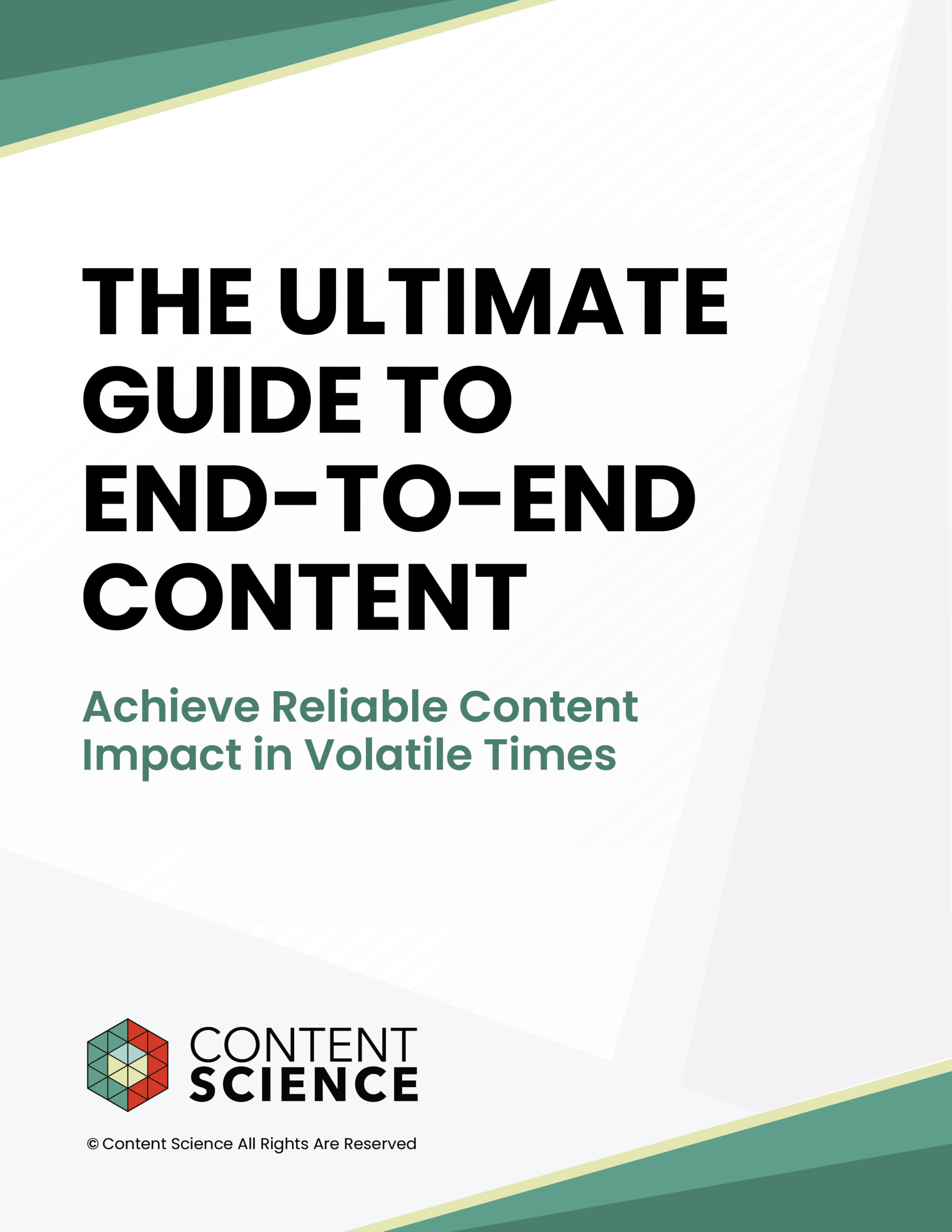
Twitter/X has become a chaotic social media platform, leaving many advertisers, users, and content creators wondering if and how they should leave Twitter/X. Since Elon Musk’s takeover in October 2022, Twitter/X has slashed its content moderation teams, threatened “thermonuclear lawsuits” against journalists critical of the platform, and entirely monetized its verification system.
These and other company decisions are responsible for Twitter/X losing 50 of its top 100 advertisers and more than 400 million monthly active users. If you and your organization have been considering closing not only your advertising accounts but also your organic accounts, the data shows that you are not alone.
But it’s not enough to simply delete your account and migrate your content to another platform. Companies considering leaving Twitter / X must do so effectively, or their online presence might take a significant hit.
So, how should a company leave Twitter / X? In this article, we discuss five risks to consider, three steps to make the transition, and possible alternatives to replace Twitter / X in your social media strategy.
5 Risks of Staying Fully Engaged on Twitter / X
Twitter / X users face an array of unique risks by staying highly engaged on the platform. While many of these risks exist on other social media platforms, these risks have become particularly prevalent on Twitter / X.
1. Risk of Being Hacked
No social media platform is immune to hacking, but few social media platforms have slashed their staff as significantly as Twitter / X. Chief Information Security Officer (CISO) Lea Kissner departed in November of 2022, indicating a significant shift in the security infrastructure of Twitter/X. Another former CISO, Peiter Zatko, filed a whistleblower complaint against Twitter / X detailing the company’s stunted priorities for security and employee access control.
It’s unlikely that plans for encrypted messaging will patch over the holes in Twitter/X’s security infrastructure. That makes hacks, data leaks, and a general lack of privacy significant issues for Twitter/X users.
2. Risk of Bot-Related Problems
While bots are fantastic tools for the speedy delivery of important information, they are also fantastic tools for artificially inflating engagement rates, persistently trolling accounts, and spreading misinformation. Bots famously influenced the 2016 election by rampantly spreading misinformation about presidential candidates, the state of the US government, and COVID-19.
The risk of bots alone is significant, but Twitter/X has compounded this issue by restricting researcher access to Twitter’s API, requiring researchers to pay to analyze large amounts of Tweets for bot activity. So not only are bots a major risk of operating on Twitter/X, but the company is also actively restricting outside analysis of how bad the problem is.
3. Risk of Brand Association with Unprofessional Content
Michael Wall, professor of practice in marketing and entrepreneurship at Washington University, recently addressed companies pausing investment in Twitter / X and noted:
If changes to the platform occur that conflict with their values, they should then discuss the appropriate next steps.
Twitter / X has always supported a wealth of diverse content, but there were also stricter controls on who could and couldn’t operate an account and what kind of content they could post. With the removal of content moderation teams and overhauls to control measures on hate speech, those controls are now loose and present a high risk of negative brand association for Twitter / X users.
4. Risk of Low-Quality Advertisers Near Your Content
Ad money is the lifeblood of mature social media platforms. Combine Twitter/X’s loss of high-quality advertisers with a lack of moderation controls, and you inevitably get a playground of irrelevant ads targeted at disinterested parties. Low-quality advertisements for products and services unrelated to your content or, worse, conflicting with your company’s content and values, can undermine your social media effectiveness.
5. Risk of Extremist Influencers
The decision to monetize Twitter / X’s verification system has equipped extremists with a level of authenticity and authority on the platform that used to be impossible. The related decision to grant amnesty to accounts suspended for problematic content has made Twitter / X a hotbed for extremist influencers.
Companies do not control how their content appears in a feed, and having your content appear right next to the content produced by a white supremacist or an anti-semite is a worst-case but all-too-possible scenario. Choosing to stay on Twitter/X leaves companies vulnerable to being associated with extremist influencers while leaving them helpless to do anything about it.
3-Step Protocol for a Company Leaving Twitter / X
Leaving any social media platform is a serious decision and requires an equally serious protocol.
1. Don’t Delete Your Account Altogether
Consumer Reports suggests:
Leave your account as is: a time capsule, with no further updates.
We agree for company accounts. If you delete your account altogether, someone else can easily make another account in your organization’s name, purchase the blue verified check mark, and sabotage away.
Instead, take this approach:
- Wind down your presence on Twitter / X and occasionally interact to ensure your organization’s account isn’t later flagged for inactivity.
- Strengthen the security of your Twitter / X account with a strong password, and change the password regularly.
2. Pin a Post / Tweet That Tells People Where They Can Find You
Some of your audience might interact with you only on Twitter today. To prevent disappointing or confusing them, direct them to where else they can find your company and its content.
So, for your last post on Twitter / X, direct users to your other social media profile(s) or website and pin it to the top of your profile. That way, any existing or new followers who view your profile will immediately know where engage with your company and your content. Here is an example from Content Science:

3. Consider DMing Your Most Important Followers
How you define “important” is up to you. Maybe your following includes someone with characteristics of your ideal customers who consistently shares your content with their own followers. Perhaps a famous celebrity, author, or influencer follows your profile. Important followers act as advocates, distribution channels, and broadcasters of your content.
Regardless of which followers you deem important, consider direct messaging them about your decision to leave Twitter / X. Chances are they’re active on other platforms, too, and might be winding down their own presence on Twitter / X.
In your message, briefly explain your decision and send them link(s) to your other social media profile(s). The key to this step is making it as easy as possible for your most valuable followers to stay up-to-date on your company.
Here is an example message we created to alert followers about our own decision to leave Twitter/X:
“Hey! We’ve made the tough decision to wind down our presence on Twitter/X. Thanks so much for engaging with us here. You can find us over at [social or community channel].”
Alternatives to Twitter / X
While nothing has yet completely replaced Twitter / X, consider these established and emerging alternatives to fill the needs Twitter / X met for your company.
- Slack
- Bluesky
- Mastodon
- Threads
For the latest statistics and highlights of trends in social media, don’t miss our Social Media Fact Sheet.
Events, Resources, + More
New Data: Content Ops + AI
Get the latest report from the world's largest study of content operations. Benchmarks, success factors, commentary, + more!
The Ultimate Guide to End-to-End Content
Discover why + how an end-to-end approach is critical in the age of AI with this comprehensive white paper.
The Content Advantage Book
The much-anticipated third edition of the highly rated book by Colleen Jones is available at book retailers worldwide. Learn more!
20 Signs of a Content Problem in a High-Stakes Initiative
Use this white paper to diagnose the problem so you can achieve the right solution faster.






Comments
We invite you to share your perspective in a constructive way. To comment, please sign in or register. Our moderating team will review all comments and may edit them for clarity. Our team also may delete comments that are off-topic or disrespectful. All postings become the property of
Content Science Review.